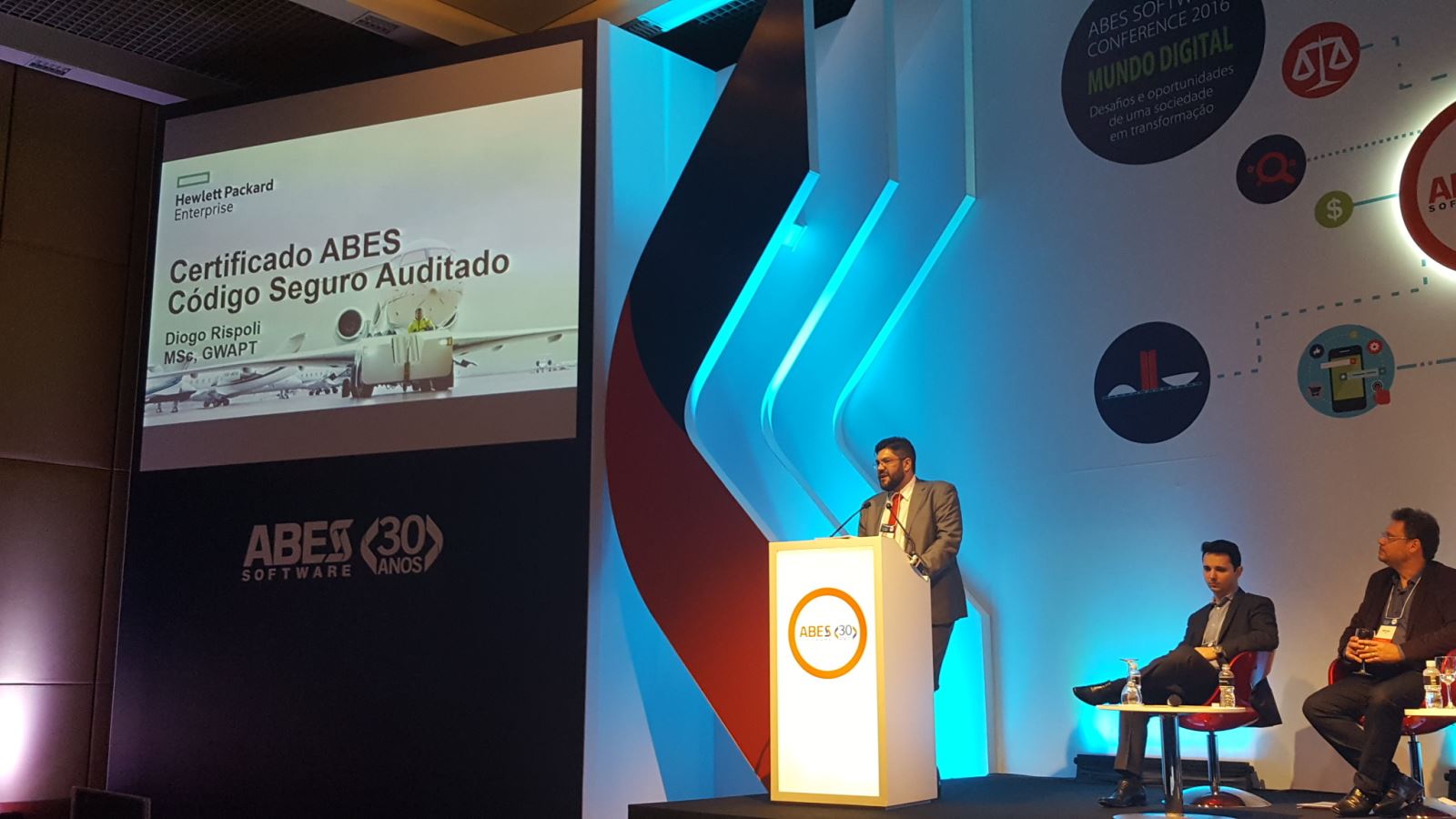
ABES Certificate of Audited Safe Code was presented
Cognitive computing, considered the Third Computational Age, as its systems approach the human way of thinking, interacting and learning, extracting knowledge from unstructured data originating from different sources in text, image and video formats, was the subject of the lecture by Thiago César Rotta, IBM's LA Watson Solutions Leader. “With cognitive computing it is possible to extract knowledge from a vast volume of data that can contribute to the solution of complex problems facing humanity. IBM's cognitive computing platform, Watson, has been leading the commercial-scale experimentation of this technology with several companies around the world."
The challenges for developers for IoT platforms were addressed by Werter Padilha, president of Taggen, who leads the creation at ABES of a committee on this subject, responsible for gathering and studying all issues related to connected objects. “The main challenge for developers is that we are breaking the paradigm of no longer programming for men, but programming for machines. I, as a programmer, say it is not easy”.
Another novelty for ABES members was presented by Diogo Rispoli, Senior Security Solutions Architect HPE: the ABES Certificate of Audited Secure Code, which will be released soon by the entity and will guarantee the quality and security of the software from its design to its operation. . “Cybercriminals have already understood that the best of data is in the software”, he said, noting that Brazil is the fifth country in the world in losses from cybercrime activities and the second generator of cyberattacks.
Reginaldo Schollemberg, president of BXT – Business Xtreme Technologies, addressed the concept of Bimodal IT and the uncertainties surrounding the topic. “Bimodal IT consists of having two teams working, one focused on maintaining the business and the other focused on innovating the Business and, thus, perpetuating the company's life in the market through the competitive advantages that this model will generate for its end customers. . It is estimated that by 2017, 75% of companies will have Bimodal IT implemented”. Among the issues raised by the speaker is the challenge of industrializing IT, what would be called IT 4.0, and the prediction that in the not too distant future the sector will have to think about Trimodal IT - with the teams that deal with the day day, those who think about the new and those who reflect on the long-term future, as many of today's technological advances began to be thought about decades ago.
Security in the digital world was the topic addressed by Bruno Zani, Systems Engineering Manager at Intel Security, who presented the Data Exchange Layer (DXL), which connects security technologies from multiple vendors using an open platform in order to establish an integration between products, facilitating technology interoperability and simplifying the integration of security products. “From the concept of connected security, the different security solutions are interconnected so that if there is a recognized threat, all other solutions are warned to block such a threat”. Today, the number of daily threats has grown exponentially and 500,000 malware is identified per week, just to cite an example of risk.
See more about ABES Software Conference 2016:
Everardo Maciel points out ways for tax reform in Brazil – 09/16/2016
Panel debated public policies, labor market and internationalization – 09/16/2016
Initiatives collaborate with the management of the IT sector – 09/16/2016
Government as an inducer of the IT sector and innovation – 09/16/2016












